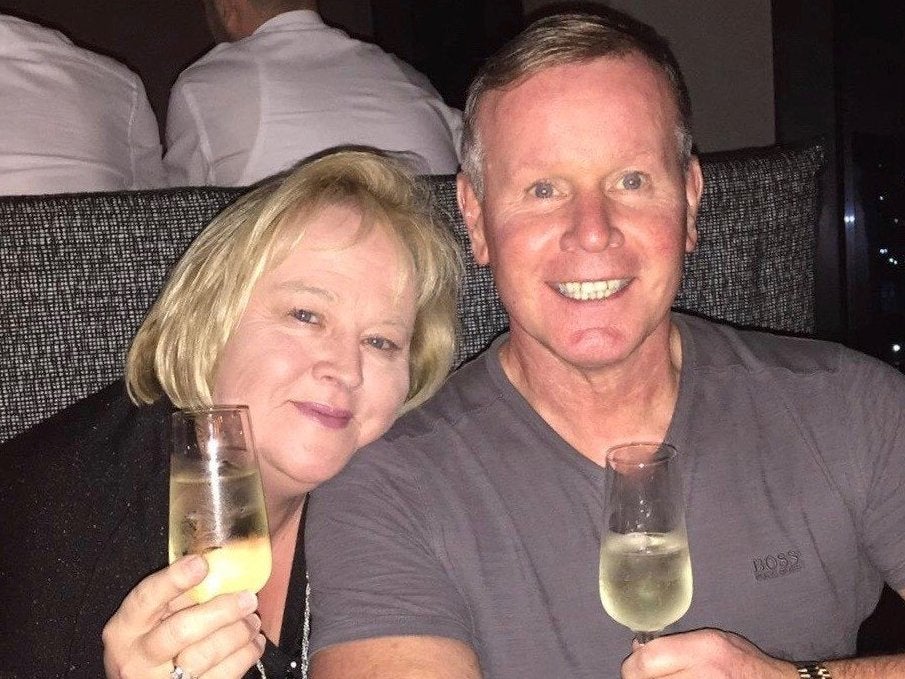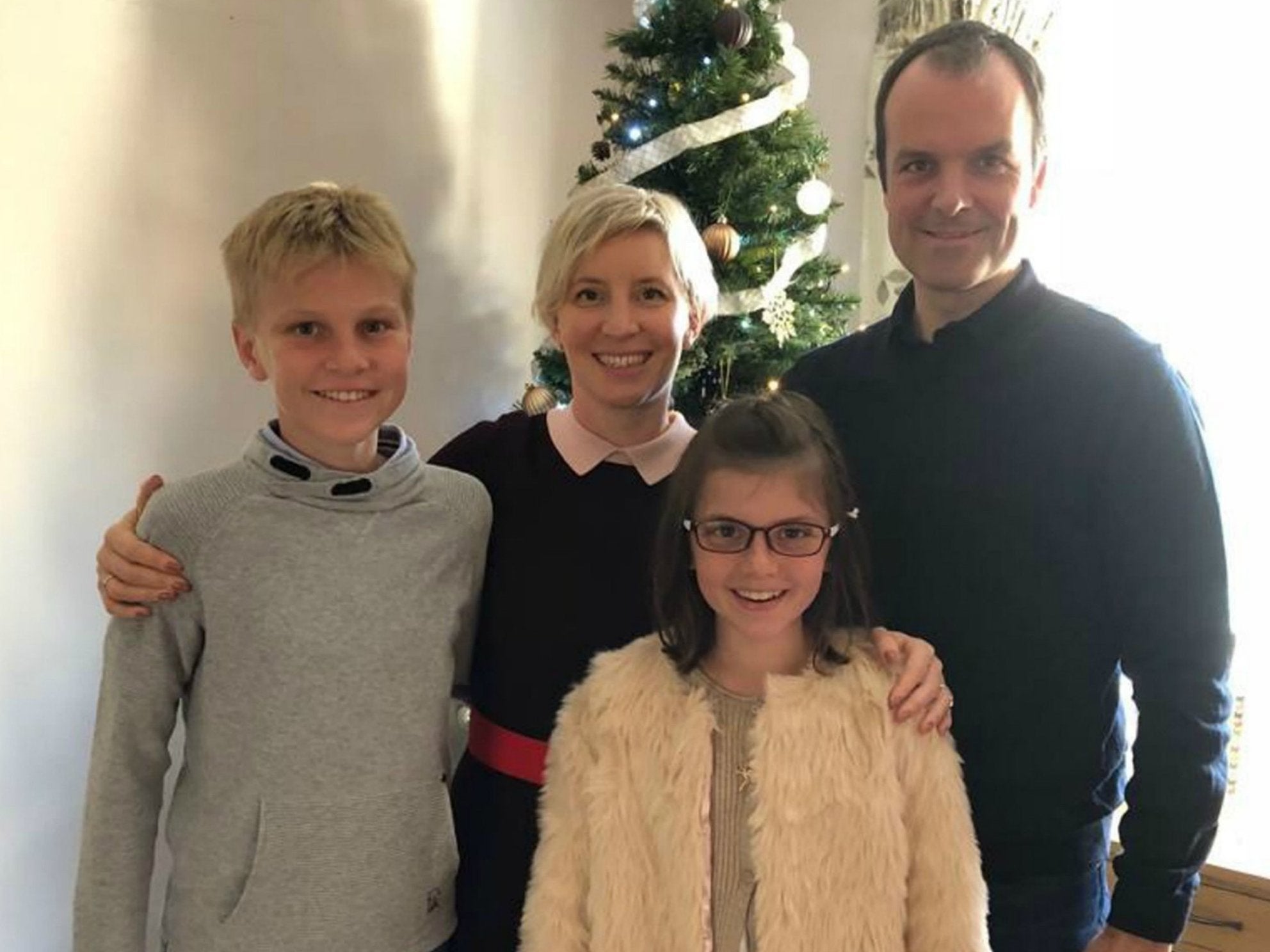Sri Lanka bombings: Eighth British victim Lorraine Campbell was 'tour de force' who brought people together, devastated family say
'Lorraine meant so much to so many people, there will forever be an enormous void that will never be filled'
The eighth British victim known to have been killed in the Sri Lanka attacks has been described by her husband as a “tour de force” who brought people together.
Lorraine Campbell, 55, died in the suicide bombing that struck the Cinnamon Grand Hotel in Colombo on Easter Sunday.
Her son said she had been on a business trip in the Sri Lankan capital, and was texting her husband when the messages “suddenly stopped”.
Mark Campbell, 32, told The Sun his stepfather rang him after the bomb went off, adding: “He said he’d been speaking to mum by text at the time and the texts had suddenly stopped.
“We know she was very close to the blast when it happened.”
Mr Campbell paid tribute to his mother’s drive, calling her his “inspiration, role model and mentor”.
Ms Campbell, an IT specialist who was originally from Manchester and living in Dubai, was known to friends as “Loz”.
Her family said she was a “a woman who embraced life to the full, and meant so much to so many people and there will forever be an enormous void that will never now be filled”.
Husband Neil Evans said he and Ms Campbell’s loved ones were “in a state of disbelief and grief”.
“Lorraine was a real tour de force, she epitomised the qualities she lived by, and was a conduit for bringing people together to both make things happen, and make them better,” he added.
“I’ve lost my best friend in the world for all the adventures we shared and planned for the future.”
Ms Campbell was among at least 359 people killed by a series of blasts at churches and hotels on Easter Sunday.
Sri Lankan officials said eight British citizens were known to have been killed in the massacres, which were carried out by local militant group that pledged allegiance to Isis.

Among the British victims are Singapore-based lawyer Anita Nicholson, her son Alex, 14, and daughter Annabel, 11, who died when one of seven suicide bombers struck as they ate breakfast at the Shangri-La Hotel in Colombo.
Her husband, Ben Nicholson, said: “Anita was a wonderful, perfect wife and a brilliant, loving and inspirational mother to our two wonderful children.
“Alex and Annabel were the most amazing, intelligent, talented and thoughtful children and Anita and I were immensely proud of them both and looking forward to seeing them develop into adulthood.”
Londoner Matthew Linsey's daughter Amelie, 15, and son Daniel, 19, were killed in the same blast on the final day of their holiday.
Mr Linsey was injured in the bombing and managed to carry his son to get medical treatment, but the teenager died in hospital and his sister at the scene.
GP Sally Bradley and her husband William “Bill” Harrop, a retired firefighter, died in the Cinnamon Grand Hotel bombing.
The couple had moved from Manchester to Australia after Mr Harrop’s retirement and relatives said they had wanted to “experience life to the fullest”.
“Kindred spirits they travelled the world together, safe in each other’s arms and with smiles across their faces,” Dr Bradley’s family said in a statement.

“They were the heartbeat of their families and the inspiration in their lives. They will be forever sorely missed, but never forgotten.”
Nisanga Mayadunne, who studied at the University of London, according to her Facebook profile, and her mother Shantha – a TV chef – were also reported to be among the dead.
A locally employed British Council employee was also ”in hospital with his wife, both with serious injuries“, said foreign secretary Jeremy Hunt.
The vast majority of the victims were Sri Lankan but the dead also included people from countries including the US, Denmark, China, Japan, Portugal and Australia.
Asos billionaire Anders Holch Povlsen, who is Scotland’s largest private landowner and Denmark’s richest man, lost three of his four children.
Police in Colombo have detained 58 people in connection with the bombings, while specialist officers from the Metropolitan Police's Counter Terrorism Command have been sent to the country to support the bereaved.
One of the suicide bombers, Abdul Lathief Jameel Mohamed, studied in Britain in the mid-2000s before returning to Sri Lanka and UK security services are assisting with the investigation.

Ruwan Wijewardene, the state minister of defence, said most of the attackers were “well-educated and come from middle or upper-middle class”.
Two of the bombers were brothers, sons of a wealthy spice trader and pillar of the business community.
Intelligence officials believe the attack was led by Zahran Hashmi, a Sri Lankan hate preacher who led the local Islamist group National Thowheed Jama’ath, also known as Mohamed Zahran.
A video released by Isis showed him and seven other attackers, including a female suicide bomber whose husband also blew himself up, pledging allegiance to the group.
The Sri Lankan prime minister ordered an investigation into intelligence failures after it emerged that security services had been warned of a plot to target Catholic churches weeks before the massacres.
Leaked letters named Zahran Hashmi and other suspects, including details of addresses, phone numbers and their movements.
Theresa May called the massacres “truly appalling”, adding: “No one should ever have to practise their faith in fear.”
Britons in Sri Lanka who need help were urged to call the High Commission in Colombo on +94 11 5390639, while people in the UK worried about friends or family should call the Foreign Office on 020 7008 1500.
Join our commenting forum
Join thought-provoking conversations, follow other Independent readers and see their replies
Comments
Bookmark popover
Removed from bookmarks